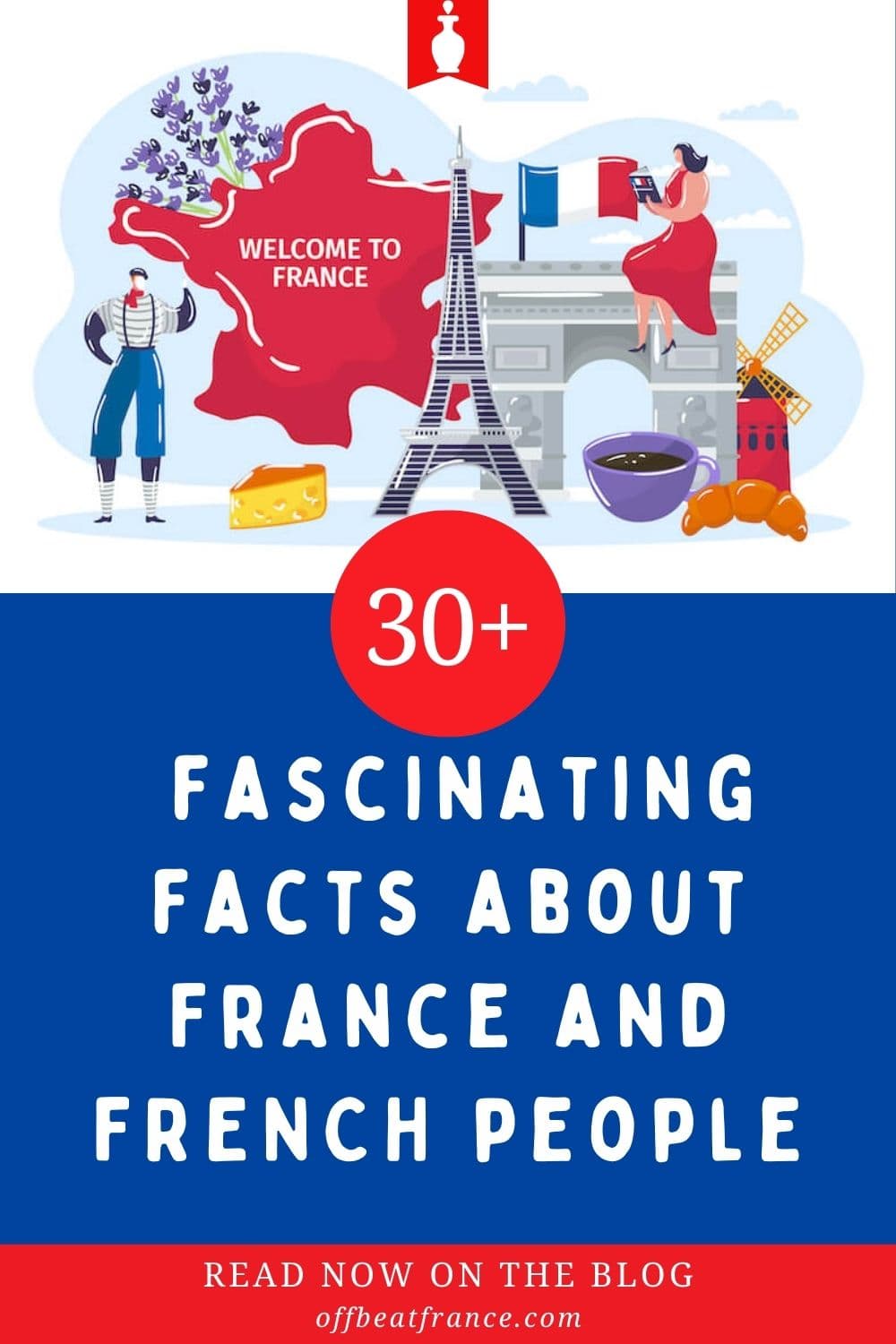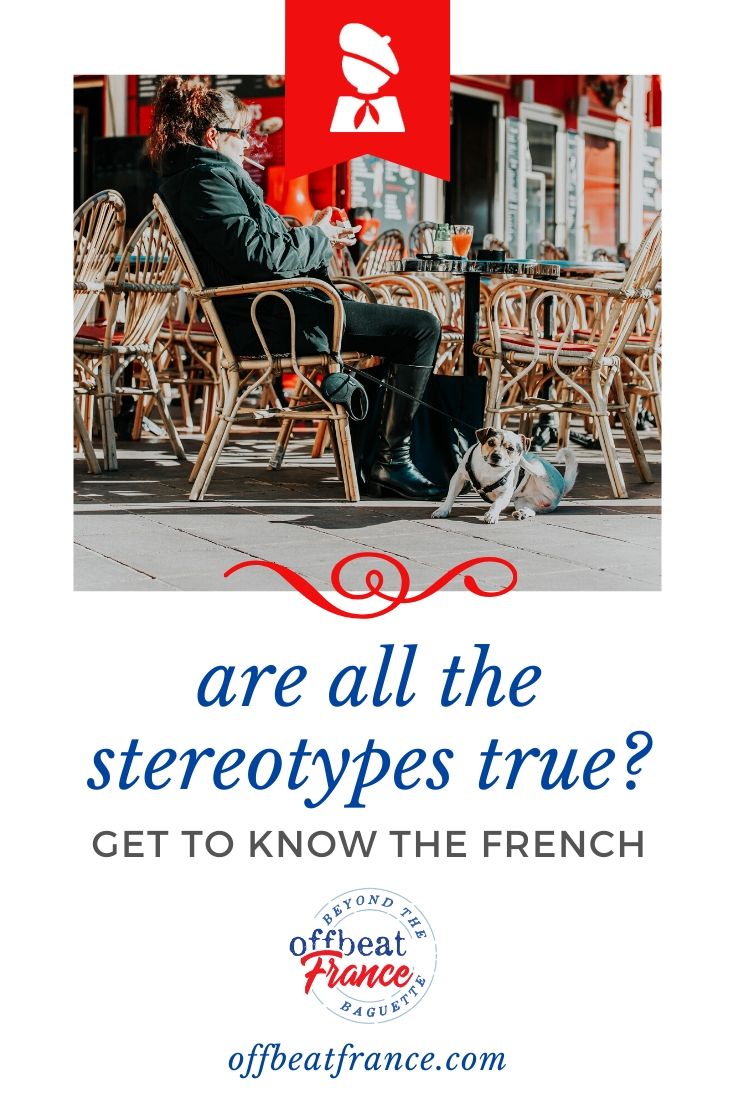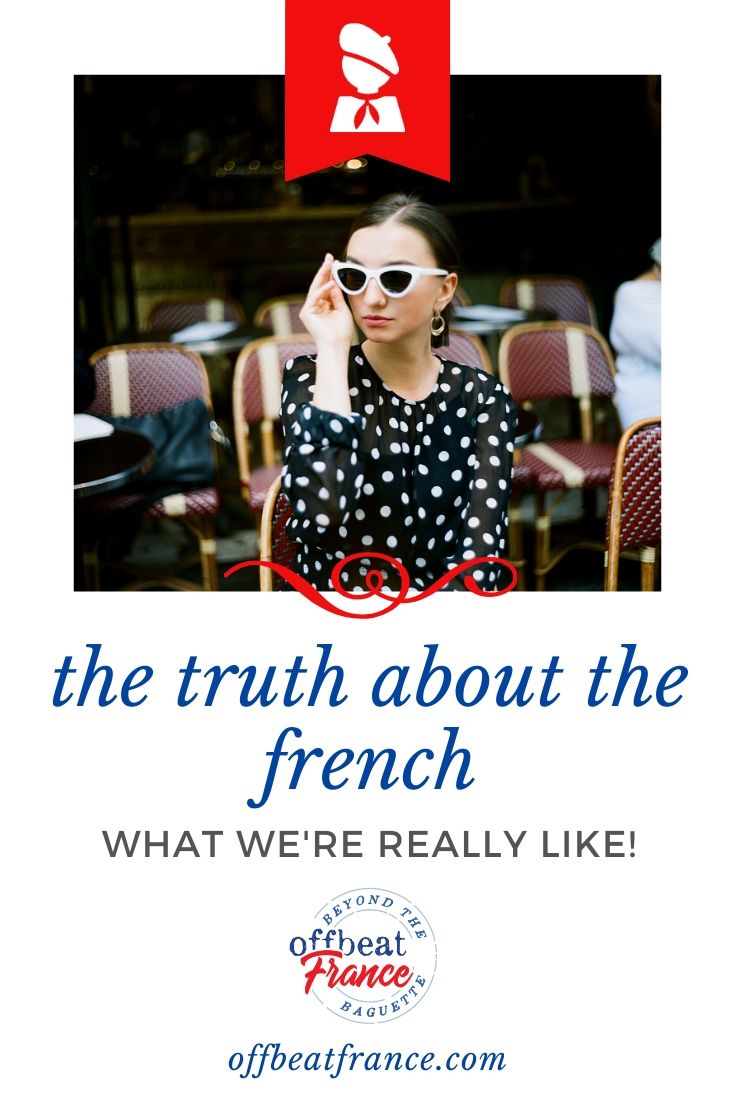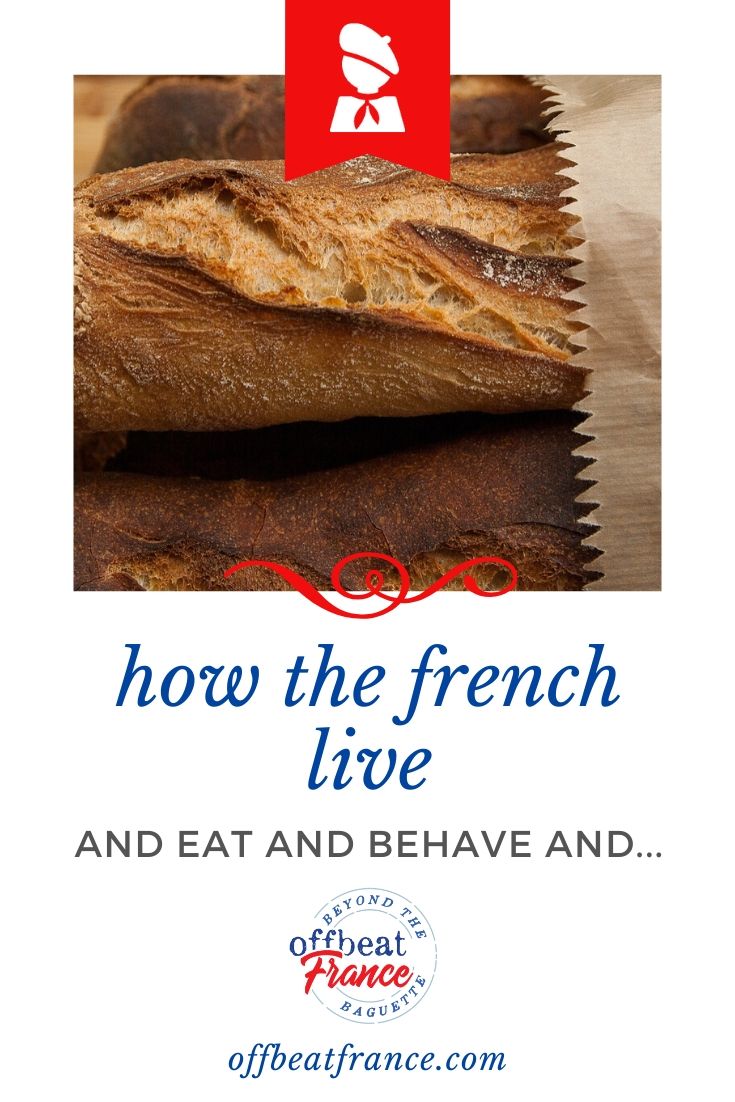Fascinated by Gallo-Roman history? Click Here to download > > > Here are 6 ways Rome affected France
- Home ›
- Ze French
Interesting Facts About the French (Many are true!)
Updated 22 October 2023 by Leyla Alyanak
Fascinated by France? Here are some interesting facts about the French you may not know!
We French can be a strange bunch but then, this can be said of most peoples.
Still, there is a certain quirkiness that sets us apart, things we say and do that might lift an eyebrow or make you scratch your head in confusion.
For example, the fact that we complain a lot (we do!), or that we think we're the best (at pretty much everything). Or perhaps you've noticed that we can't laugh about ourselves, which may make you think we are humorless (we are not – we're perfectly happy to laugh about YOU – and everyone else).
Yes, most of this is true. Whatever it is, ours is bigger, better, smarter. (By the way, we're not the only ones who articulate our perceived superiority in this manner!)
So yes, there are plenty of stereotypes about the French and yes, many of them are true.
But beyond our stereotypes, there are the everyday things that make France what she is — things you may not know! So please join me as I share a few of those fascinating facts about France and its people.
French food facts: did you know that...
We produce more than 400 cheeses (1000, if you include sub-varieties)
Half of us eat cheese every day, or 26kg of cheese a year, more than anyone else. Brits eat only 11kg of cheese each year... So yes, we could eat a different cheese every day of the year and never eat the same one twice.
Our wine consumption isn't bad, either
Italy may be the world's biggest wine producer, but we are second. That said, we export more than everyone else.
We do love our wine: our drinking age is 16 but that's a legal detail. Most of us tasted wine at home years before that age.
The average French person eats around 500 snails a year
Yes, depending on which source you use. Others say we devour 500 millions snails each year in this country, or 25,000 tonnes. And the French eat two in every three snails eaten around the world. So yes, we do like them (along with other things you might consider weird French foods).
We don't throw out food
Not legally, at least. It is illegal to throw out unsold food if it is still edible, so our supermarkets must give it to those in need.
Our croissant are not... French
Our croissant had an Austrian ancestor, called the kipferl. A baker from Austria opened up shop in Paris and served kipferl to the clients. Parisians loved it so much that they made their own, changed the shape and texture, and voilà, an undeniably French specialty.
Neither are French Fries or French Toast
Sad but true, and their origins are debatable.
Some sources say that fried potato – aka French fries – were introduced to America by the way of French-speaking Belgian soldiers in World War One. Others claim that Thomas Jefferson returned to America from France in the late 18th century and brought the recipe with him.
As for French toast, it may originate from the days of the Roman Empire. Not only that, but it may well have been a common dish in Germany and Spain before making its way to the court of Henri V in France.
The baguette, on the other hand...
...is VERY French, or at least, its origins are nebulous enough for us to be able to claim it.
There are even laws that govern the making of a baguette to make sure the quality remains high. A baguette can only contain flour, yeast and salt, and must weigh 250 grams.
And while we’re on the subject, ten billion baguettes are baked every year in France, with each household consuming at least one a day. (I can personally state that I do my patriotic bit when it comes to baguette consumption.)
Our breakfasts tend to be modest
You'll be in trouble if you expect an English or American-type breakfast in France, unless you're staying at a large hotel which caters primarily to foreigners.
Our breakfasts tend to be quite modest: a café au lait, often drunk out of a bowl rather than a cup, or a hot chocolate; a tartine, about a quarter of a baguette with butter and jam, and the occasional croissant or two.
Here's what a typical French breakfast is like.
Our other meals, on the other hand, are anything but
Our meals usually have several courses: an appetiser, a main course and a dessert at the very least, and often a cheese course. If you're in a grand restaurant (one with stars), you may end up with more than one appetiser, and two main courses, a fish or vegetarian one, followed by a meat one. You might even end up with more than one dessert!
Portions, on the other hand, will be appropriately modest, calculate to have you end your meal sated but not keeling over.
And take your time. Our meals are to be enjoyed.
Keep your eye on your watch when food is involved
There's nothing more frustrating than a combination of hunger and closed shops.
France is strict about its opening hours and once that door is shut, no amount of tears will open it. So make sure you get your food before the shop closes. Supermarkets tend to stay open through lunch, but your charcuterie (for your delicatessen meats) and your boulangerie (for your baguette) do not.
In fact, outside major tourist areas, everything is shut over lunch, because shopkeepers eat, too.
Restaurants, by the way, also tend to have strict opening hours, unless they're in tourist areas, in which case they often stay open right through. They vary, so check, but rarely will you find anything open before 12:30 for lunch or 7pm for dinner.
We do like our table manners
I have to admit to my horror that these are changing and becoming more relaxed. But traditionally, we're quite stiff when it comes to manners.
For example, I was an adult before I picked up my first hot sandwich with my hands. And when I visited my first Macdonald's in my late teens, I innocently asked for a knife and fork for my hamburger. (I'd been living in southern Europe, what can I say!)
Growing up, I was taught to use a knife and fork for everything, from fruit to pizza to seafood (trust me, that one's a challenge).
Young people, of course, use their hands these days, and I admit I do too. My mother would be shocked.
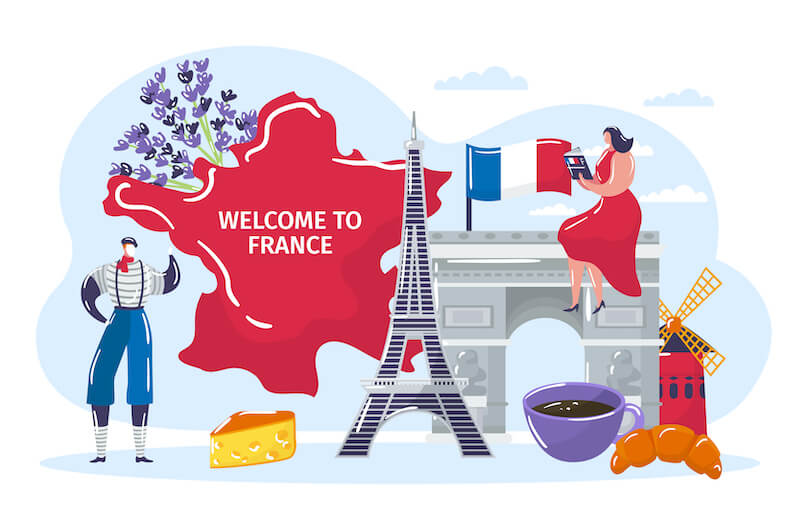
French language facts: did you know that...
French hasn't been the native of language of France for long
Early on, when France was still known as the Roman province of Gaul, people here spoke Latin.
Throughout history, France was a shifting agglomeration of provinces with their own language, customs, and history. It took François I and his declaration of Villers-Cotterêts in 1539 to switch the administrative and legal language from Latin (the language of the Catholic Church) to French.
And still, until the French Revolution, three-quarters of France spoke a language other than French as their native tongue.
Today, while most French speak, well, French, many also speak regional dialects or languages — in the Basque country, Alsace, Brittany, near the Catalonian border...
29 countries have French as an official language
Here they are: Belgium, Benin, Burkina Faso, Burundi, Cameroon, Canada, Central African Republic, Chad, Comoros, Côte d'Ivoire, Democratic Republic of the Congo, Djibouti, Equatorial Guinea, France, Gabon, Guinea, Haiti, Luxembourg, Madagascar, Mali, Monaco, Niger, Republic of the Congo, Rwanda, Senegal, Seychelles, Switzerland, Togo and Vanuatu.
And those are just the countries... because there are also dependencies of various sorts that also speak French as their official language.
French has loaned many words to English
Of course they're different languages but sometimes the similarities can be staggering and I'll translate a dozen words and find that most are nearly identical in both languages.
Champagne. Technique. Brunette. Depot. Reservoir. Massage. Gazette. Elite. Chauffeur. Dossier. Aperitif. Ballet.
And I could go on...
French history facts: did you know that...
France has its own Stonehenge
Except it's older... It's called Carnac and it's in Brittany, and it predates Stonehenge by a century. As is the case with Stonehenge, no one knows for sure who put the huge stones there, or why.
Theories range widely – some say Pope Cornelius turned pagan soldiers to stone, and others claim that the wizard Merlin himself transformed Roman soldiers into rock.
Marseille is France's oldest city
Marseille was probably founded by Greek sailors in the sixth century BC from Phocaea in Asia Minor — and they called it Massilia. I say probably because there is some evidence the Phoenecians might have settled here even earlier.
Massilia did exceedingly well and became a trading center of note. Over time its fortunes rose and fell, and it played a major role in the French Revolution. Today it is France's largest commercial port and the largest city on France's Mediterranean.
And if you like fish soup, you might try the delicious bouillabaisse when you're here...
There were French popes
From 1309 to 1378, the Papal headquarters moved from the Vatican in Rome to a palace in Avignon, the result of factionalism within Rome and conflict with France.
This resulted in 70 years of French papacy and seven popes, which helped solidify French political power, a period sometimes referred to as the "Babylonian captivity of the Papacy".
France pioneered public transportation
During the 15th century, Louis XI created the Royal Postal Service, which moved mail and people between cities. As roads improved, so did coaches, until the first urban transport network was created in 1662, under Louis XIV.
These horse-drawn carriages traveled along set routes in Paris and at fixed times and prices, however full or empty. Sadly and snobbishly, nobles decided to exclude "the masses" and raised prices, which doomed the carriages. It would take a full century and a half, until 1825, before the next urban transport experiment would take place, in the city of Nantes.
Paris and London were once in the same time zone
Yes, it's always frustrating to be one or sometimes two hours apart... but this only became the case during World War II, when the Nazis insisted that their "possessions" be in the same time zone as Berlin.
Before then, France, Belgium and the Netherlands had all been in the UK time zone.
French fashion facts: did you know that...
The bikini was invented in France
It was 1946 and a daring two-piece bathing suit was shown off for the first time at the Piscine Molitor in Paris, inspired by the Bikini Atoll which happened to be in the news because of the US atomic tests taking place there.
And so were blue jeans!
This one might be harder to believe but it's true, although the exact origins are a little murkier. The word "jeans" may come from Genoa but "denim" surely comes from the French city of Nîmes. From Nîmes is "de Nîmes" in French...
Only later did Levi Strauss import them to provide California's gold miners with heavy-duty trousers.
The first ever fashion magazine was French
That the French love fashion is no surprise, but that love goes back a long way, to Louis XIV, in fact, under whom the very first fashion magazine was created.
"Le Mercure Galant" kept courtiers and nobles apprised of the latest fashion and lifestyle trends which, as we know, were very much the thing at Versailles, along with stories of public interest.
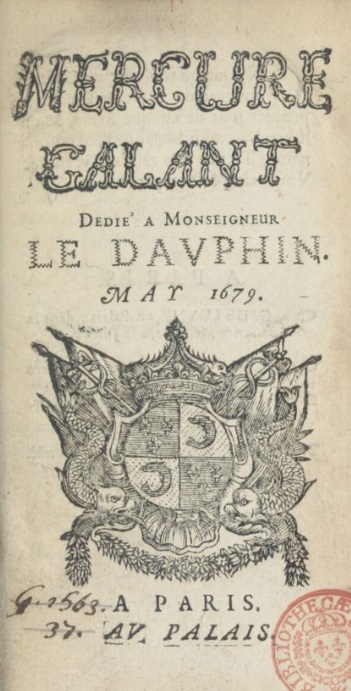 Courtesy retronews.fr
Courtesy retronews.frFrench geography facts: did you know that...
France is still a colonial power
It has 13 of them, to be exact, which happen to be overseas territories in the Caribbean/Atlantic, the Indian Ocean and the Pacific. These are officially a part of France, vote in French elections and have representatives in France's Parliament.
Curious about what they are? You'll find them here.
We call our mainland the 'hexagon'
Because that is its shape. Continental France is six sided... More or less.
A third of France is green
We do love our cities but we also love our outdoors, and nearly a third of the country is covered in forest. We happen to be the fourth most forested country on the continent, although the recurrent forest fires and climate change are endangering these forests.
French culture facts: did you know that...
The longest book is French
And why is this not surprising? This distinction goes to Marcel Proust's "A La Recherche du Temps Perdu", or Remembrance of Things Past, which clocks in at 3000 pages over 13 volumes. Or, if you prefer, 9.6 million characters, spaces included. You might like this list of essential books about France.
France has more Nobel Literature prizes than any other country
Given France's love of literature, this shouldn't be surprising either. France boasts 15 literature Nobels, compared with the US's 11 and the UK's 10.
The French love philosophy
Given our love of debate and our intellectual leanings, again, this should come as no surprise.
We learn philosophy at a young age, and it's not uncommon for a 14-year-old to be asked such things as "What is happiness?" or similar existential question on an exam (I know this from experience).
Yet we are depressed
Apparently, the French have the highest rate of depression in the world... 21% of all French have gone through some sort of depression during their lives, compared with 19.2% in the US. This, however, was a study conducted in the early 2000s so while the French may still be depressed, there's every chance they're not behind the US anymore...
Perhaps it's because we don't have sales?
That's right, the government regulates sales tightly so they take place only twice a year, at set dates in January and July. This may be less exciting than walking by an unexpected 70% off in a favourite shop window, but at least it's predictable.
At least we can take our dogs with us just about everywhere
That's right, few places force us to leave our furry friends at the door. The supermarket is one of the few exceptions...
I can take my dogs to the restaurant, to most shops (although I have two huge disobedient dogs so on occasion their welcome has been less than warm), on all public transport, into bars and malls...
And don't be surprised if the waiter or waitress offers your pooch a nice, fresh bowl of water.
Did you enjoy this article? I'd love if you shared it!
